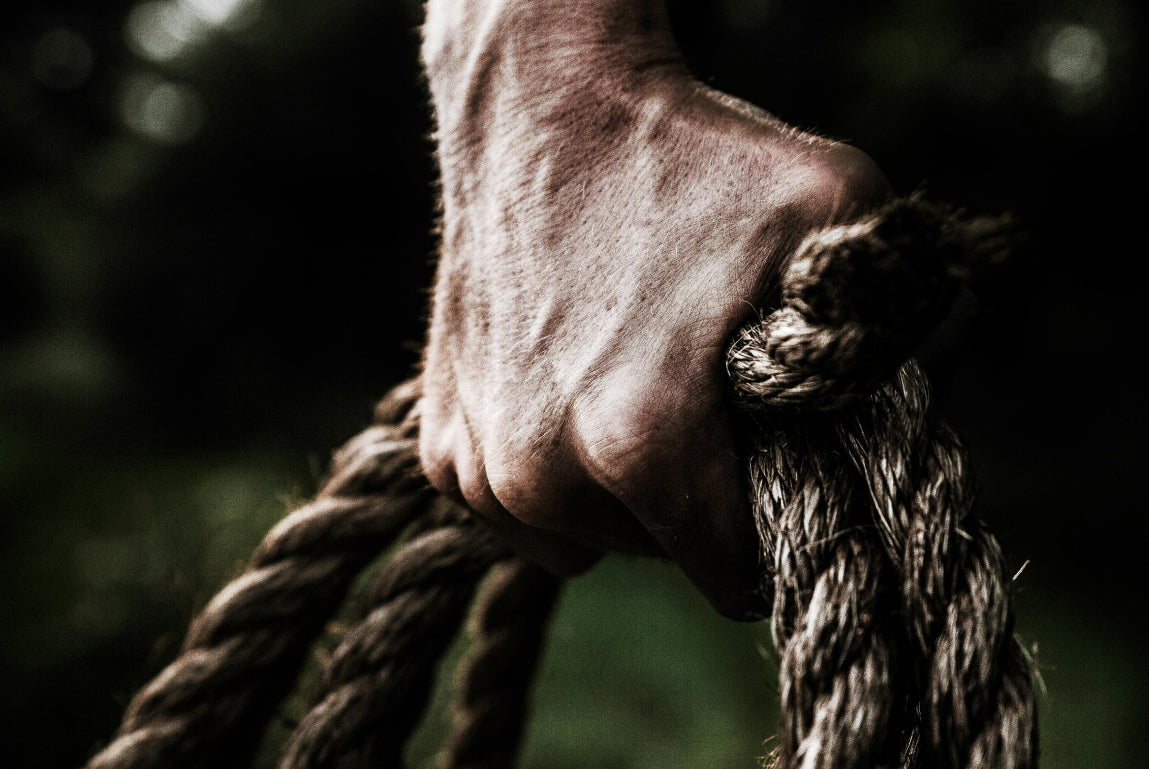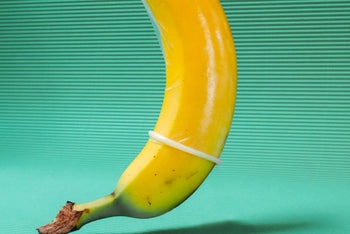

Key Takeaways
Death Grip Syndrome isn’t a medical term, but it’s a real issue for many men.
Death Grip Syndrome symptoms include penile sensitivity loss, erectile issues, and delayed ejaculation.
Overly aggressive masturbation habits can lead to nerve damage from masturbation and other complications.
Death Grip Syndrome solutions include adjusting techniques, doing pelvic floor exercises for men, and trying sensate focus therapy.
Spoiler alert: Your hand might be the culprit. Yep, we said it. Let’s talk about Death Grip Syndrome—no, it's not a new horror movie, but it can be pretty scary for your penis.
What is Death Grip Syndrome?
Death Grip Syndrome (DGS) is the unofficial name for something that happens when you grip it way too hard during solo sessions. Over time, this can lead to decreased penile sensitivity, difficulty achieving or maintaining an erection, and delayed ejaculation. While Death Grip Syndrome not a medically recognized condition, it’s very real for the guys experiencing it. Think of it like trying to get used to a handshake after years of bear hugs. Your body’s confused, and your penis? Not thrilled.
Death Grip Syndrome is similar to Traumatic Masturbatory Syndrome, which involves sexual dysfunction from frequent, aggressive masturbation. Both can mess with your pleasure radar and lead to issues like delayed ejaculation and penile desensitization.
How Does Death Grip Syndrome Affect Penile Health?
1. Reduced Sensitivity: When Nerves Cry "Enough!"
One of the biggest complaints with Death Grip Syndrome is penile sensitivity loss. When your grip is tighter than a jar lid you can’t open, those nerve endings in your penis get overstimulated and stop responding like they used to. Suddenly, what used to work just isn’t cutting it anymore—whether you’re flying solo or with a partner. Not ideal.
2. Erectile Dysfunction and Performance Issues
Over-relying on that intense grip can trick your brain into thinking that’s the only way to get aroused. Then, when it’s showtime with a partner, things... don’t work as planned. This kind of conditioning is one of the lesser-known erectile dysfunction causes and can lead to full-blown sexual performance anxiety. You’re not alone—and you don’t have to stay stuck in this cycle.
3. Difficulties with Ejaculation: When the Finish Line Feels Miles Away
If climaxing during partnered sex feels like chasing a mirage, delayed ejaculation from Death Grip Syndrome could be the culprit. When your body gets used to one very specific sensation, it can struggle to adapt to the softer, subtler ones that come with partner play. It’s frustrating—but totally fixable.
4. Penile Skin and Tissue Damage
Yes, it’s possible to overdo it. Repeated aggressive friction can cause microtears, callousing, and even bruising. Long-term, this can lead to reduced elasticity—aka less impressive erections. Pro tip: Lube isn’t just for partnered play. Try our Popstar Personal Lubricants to smooth things out and keep your skin happy.
Why Does Death Grip Syndrome Happen? (Hint: It’s Not Just Physical)
Sexual Conditioning: Your Brain’s Role in Death Grip Syndrome
Your brain is the control center for arousal, and over time, it can get stuck in a routine. If it’s been trained to only respond to a certain grip and intensity, anything else feels... underwhelming. This can lead to sexual performance anxiety, further complicating things. Techniques like Cognitive Behavioral Therapy for ED can help break this cycle by retraining your brain’s pleasure response.
Anxiety Makes Things Worse (Thanks, Brain)
Worrying about your performance can create a feedback loop where anxiety makes erections harder to achieve—and not in the fun way. Mindfulness practices can help, but if you’re feeling stuck, talking to a professional is a great move.
How to Recover from Death Grip Syndrome
1. Change Your Masturbation Habits
First things first: lighten up—literally. Ease off the grip and experiment with healthy masturbation techniques like using a softer touch, slowing down, or adding lubricant. Take a break if needed. Your penis will thank you.
2. Try Sensate Focus Exercises
This technique involves focusing on different sensations without rushing toward orgasm. It’s often used in sex therapy and can help your body get used to gentler stimulation. Think of it as retraining your brain to enjoy the journey—not just the destination.
3. Strengthen Your Pelvic Floor
Yep, guys have pelvic floors too. Pelvic floor exercises for men (like Kegels) can improve blood flow, strengthen erections, and help with ejaculation control. Bonus: you can do them anywhere. Sitting in traffic? Kegel time.
4. Practice Mindfulness and Sensory Training
Mindful masturbation isn’t just a buzzword—it works. Focusing on sensations rather than racing toward orgasm can improve arousal and pleasure. Sensory training, like experimenting with different textures or temperatures, can also help reignite your sensitivity.
5. Consult a Professional
If you’ve tried it all and things aren’t improving, don’t tough it out. Professionals can offer personalized strategies, from sex therapy to exploring erectile dysfunction treatment options. Sometimes, you need a team effort.
Loosen the Grip, Take Back Your Pleasure
Death Grip Syndrome might sound intimidating, but the good news? It’s totally reversible. By making simple adjustments to your habits, exploring new sensations, and giving your body time to recalibrate, you can restore sensitivity and improve your sexual health. Whether it’s easing up on intensity, incorporating mindful techniques, or strengthening your pelvic floor, small changes can lead to big improvements. Your pleasure should never feel like a struggle—so let’s get things back on track.
Frequently Asked Questions: Death Grip Syndrome
How long does it take to recover from Death Grip Syndrome?
Recovery varies, but with consistent changes to your habits, you may notice improvements within a few weeks. Full recovery of penile desensitization could take a few months.
Can Death Grip Syndrome cause permanent damage?
In most cases, no. While nerve damage from masturbation is rare, persistent aggressive habits can cause temporary issues that improve with proper care and technique adjustments.
Is Death Grip Syndrome the same as Traumatic Masturbatory Syndrome?
They’re similar! Both involve sexual dysfunction from aggressive masturbation habits, but Traumatic Masturbatory Syndrome is a broader term that includes various forms of sexual dysfunction.
Can pelvic floor exercises really help?
Absolutely. Pelvic floor exercises for men can improve blood flow, strengthen erections, and help with overcoming delayed orgasm issues.
What should I do if changing my habits doesn’t help?
If issues persist, consult a healthcare professional. Therapies like Cognitive Behavioral Therapy for ED or sensate focus therapy can be very effective.














